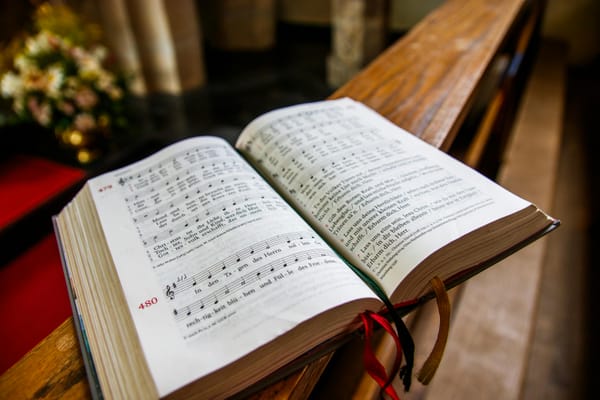Women in the Church
What did Paul Really mean?

One of the two main passages used to teach that a woman must never speak in a public church setting is found in 1 Corinthians 14:34-35 and it reads as follows:
"Women should remain silent in the churches. They are not allowed to speak, but must be in submission, as the law says. If they want to inquire about something, they should ask their own husbands at home; for it is disgraceful for a woman to speak in the church. " -NIV (New International Version).
The second verse used in connection with the above is in 1 Timothy 2:11-12 and says:
"A woman should learn in quietness and full submission. I do not permit a woman to teach or assume authority over a man; she must be quiet." -NIV
The book of Acts is the earliest record of the actions of the Holy Spirit in the lives of the apostles and first-generation Christian converts, many of whom were women. Peter at the Pentecost, quoting Joel, announced that sons and daughters would prophesy (Acts 2:17). Many years later in Acts 21:9, we read that Philip had four daughters who prophesied. In the epistles, we read where God used husband-wife couples in the church to assist in organizing churches in their homes, and the husband and wife team are listed working together teaching and instructing. One of these couples was Priscilla and Aquila, a dynamic couple who assisted Apollos in understanding the Holy Spirit (Acts 18:24-28). Verse 26 from what that passage reads, "He began to speak boldly in the synagogue When Priscilla and Aquila heard him, they invited him into their home and explained to him the way of God more adequately." -NIV. This couple formed a church in their house (Romans 16:3-5). When ministers publicly state that Paul forbade any woman to speak in the church, they will have difficulty explaining another instruction that Paul gives in 1 Corinthians 11:5:
"But every woman who prays or prophesies with her head uncovered dishonors her head-it is the same as having her head shaved." -NIV.
In this reference, Paul acknowledges that women both prayed and prophesied in the church. Is this a contradiction? That a woman should never speak in a church and yet is permitted to pray and prophesy in the church? Going back to the "Women should remain silent in the churches." in Cor. 14:34-35, note that Paul follows this injunction with these words: "If they want to inquire about something, they should ask their own husbands at home." This is actually the second half of the verse that explains the "remain silent" admonition. In the Jewish culture, the Temple had a court of women where women were permitted to watch the procedures of the Temple. There was also a Gentile partition restricting Gentiles from entering past a certain point. In the Jewish synagogues, men sat on the main floor and the women were permitted in the balconies. Today in Israel at the famous Western Wall, the men pray on the left and the women pray on the right, with a stone wall separating the two groups. Thus in the orthodox Jewish culture, men and women sit separately.
Many scholars believe that the passage on women keeping silent was not related to praying or prophesying, but to prevent that when a speaker was talking (with the women sitting in a separate area from their husbands), they would disrupt the service by asking their husbands for further explanations and, thus, create confusion. Paul instructs the women to learn from their husbands when they were at home, to prevent public disruption and confusion during the service. Greek scholars point out that in that culture, the men attended synagogues and were well educated, while women bore children and performed the tasks of being wives and mothers. Thus, the educated men taught their wives in private. Paul is not dealing with the subject of women preachers, but of discipline and order during a religious service.
The theme of Paul's admonition is a woman speaking in the church. There are two important words for speak and speaking that must be understood in relation to a woman not "speaking" in the church. They are the Greek verbs laleõ and lego. The word laleo refers to the ability or use of the organs of speech, giving a sound, utterance, or expressing words with your voice. Lego means to speak in the sense of declaring an intelligible mes-sage. According to Greek scholars, laleõ emphasizes the outward form of speech and lego refers to the substance and meaning of what has been spoken. In brief, laleo refers to the act of speaking, while legõ declares what the speaker actually says.
The Greek word laleo is also used for the sounds made by birds, insects, bees, and even the sound of a trumpet (Revelation 4:1), the sound of thunder (Rev. 10:3-4), the voice of the dragon speaking (Rev. 13:11), and the speaking voice given to the image of the beast (Rev. 13:15). The word was also used by Greeks when infants would jabber before they could articulate words. The root of the word laleo is lal, illustrating the effort of a child to make its first sounds, "la, la, la."
To understand the context of a woman keeping silent, Paul does not use the word for a woman making intelligent words or speech, but the word for making sounds. He was saying they should not be la-la-la-ing around in the church. It was about disturbing the service and not about teaching and instructing with an intelligent sound and voice. An examination of Scripture shows that women were permitted to pray and prophesy and were active in ministry (Acts 21:9, Romans 16:1-5).
In 1 Timothy 2:11-12, the women were not to "usurp authority" over a man. The Greek word for usurp is authenteõ and means "to act upon your own" or "to dominate over." Look at the word "silence" from v. 11: "Let the woman learn in silence..." In 1 Corinthians 14:28, if a person speaks out loud in tongues in a church service and no one interprets, then the person is to keep silent. This Greek word is sigao and means "to hold your peace and say nothing else." It is used when the multitude kept silent while Paul and Barnabas were speaking (Acts 15:12) and when Paul gave a speech before a group of men (Acts 21:40). In 1 Corinthians, Paul says for the women to keep silent, and he uses this word meaning to say nothing, for they were disturbing the speaker by interrupting. As the minster spoke, they were to listen and not ask, at that time, for explanations.
In addition, in 1 Timothy 2:11, where women are told to keep silent, the Greek word for silence here is different than in 1 Corinthians 14:12. This Greek word hēsuchia is a word meaning "being still and in quietness, or figuratively away from the bustle and the noise." Paul is saying let them be at peace and not attempt to rise up against the spiritual authority of the men in the church. If men were teaching, then the women were to be subject to the male teachers and not rise up and challenge their authority. If women were teaching, the men were to be subject to the female teachers and not rise up and challenge their authority.
When a person reads 1 Corinthians 14:34 and 1 Timothy 2:11 without researching textual and historical context, it would seem Paul was very much against women saying or doing anything in a church setting. However, the Greek word, the context, and the cultural traditions of the day have bearing upon understanding the intent of Paul's instructions.
If we move from the ministry of Christ to the time of His sufferings, all of His chosen disciples fled the scene except the apostle John. However, dedicated women were present at the cross, including Mary the mother of Christ, who was given into the care of the apostle John (John 19:25-27). When the other ten disciples were hiding behind locked doors and windows for fear of their lives, it was two women, with the same name "Mary" who journeyed to the tomb at about sunrise to anoint Christ's body (see Matt. 28:1). After Christ's ascension to heaven there were women, including Mary the mother of Christ, present during the early meetings in Jerusalem prior to the outpouring of the Holy Spirit (Acts 1:14). While the men ran away, the women remained and became the first to announce the good news that Christ was resurrected (Matt. 28:7). Today, they would be termed "evangelists," or those who bring good news.
Refrences: "The Perry Stone Hebraic Prophetic Study Bible." Perry Stone 2016 Oxford University Press.




